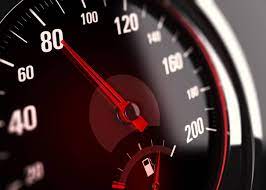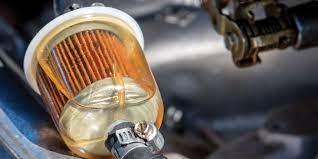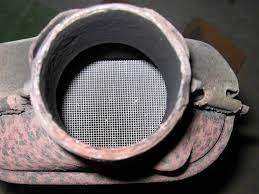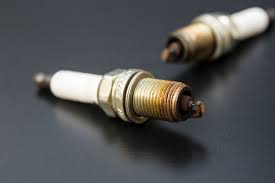Reasons Why You Lose Power When Accelerating
We may not be attempting to escape the Chicago PD like the Blues Brothers were but we could be trying to merge onto a busy freeway and if our acceleration fails we could be in serious danger. In this article we are going to look at the causes of power loss during acceleration.
How Does Acceleration Work?
Inside our gas powered engine we have several cylinders which contain small explosions that are controlled by compressing fuel and air which is then ignited by a spark. This happens in a preset sequence over and over as the engine is running.

When we press the accelerator we send a message to the engine to increase the frequency of these small explosions which in turn causes more rotation in the engine. This rotation is transferred to the car's drive wheels via the transmission.
The harder we push our engine the faster it should rotate and the quicker our cars should go. The concept is simple although a little more complex than we have described here. If something goes wrong however when we press the accelerator something may stop this extra rotation from being created which will cause the car to accelerate more slowly or not at all.
What Can Cause Power Loss Under Acceleration?
There is no shortage of possible reasons that you will experience acceleration issues with your car. In this section we will look at some of the most common to hopefully help you diagnose the issue you are experiencing.
Clogged Fuel Filter
This is a common issue which happens in both gas and diesel powered engines. This filter keeps particulates out of the engine by capturing them while allowing the fuel to flow through on its way to the combustion cylinders.
If these filters get clogged it will stop or at least hinder the fuel from reaching the cylinders. This can cause engine misfires or failure of the engine to run. A common sign of clogged filters would be a loss of engine power while you try to accelerate.

This should be the first thing you check if you are having acceleration problems. If the filter is clogged it is an inexpensive fix which you may be able to do yourself or get a mechanic to replace. Either way it will not cost much money and you should be able to accelerate normally once the fuel can flow freely again.
Clogged Air Filter
We mentioned that you need both fuel and air to make the cylinder combustion events occur and just like with the fuel filter there is a filter for the air entering the engine too. This is intended to keep dust and dirt from entering the engine where it could cause damage.
Just like the fuel filter, the air filter can become clogged which will hamper the flow of the air into the engine. Again this causes issues with the cylinder firings which may hamper the ability of your car to accelerate. Often you will be offered a new air filter each time you have an oil change and it is wise to accept this as it will keep your engine running more smoothly.
Catalytic Converter Issues
We have spoken so far about the aspects entering the engine to make it run in terms of the fuel and air. But once these little explosions occur dangerous exhaust gases are released. These are contained in the engine until they are released into the exhaust system.
As part of the exhaust system, you have a catalytic converter which turns the dangerous gases into less dangerous ones before allowing them into the open air. If the catalytic converter becomes clogged or damaged preventing the gases from passing through then you have an issue.

If exhaust gases can escape the engine this will cause what is known as back pressure, The result of this is that the engine will not run efficiently, may lose power in extreme cases or even stall. You may need to either clean the catalytic converter or replace the part entirely.
Sensor Issues
There are several sensors involved in the process of controlling how the air and fuel mixture is measured in your car. These sensors assess conditions such as exhaust fumes or the amount of air entering the system.
When sensors fail they may not send messages to the vehicle's computer system which will result in poor mixing of the fuel and air. This will affect performance and can most definitely cause a noticeable drop in acceleration.
Sensors that may be involved include oxygen O2 sensors and mass airflow (MAF) sensors. Sometimes these may just need cleaning but occasionally they will have to be replaced to ensure your engine can run at its best.
Faulty Fuel Injectors
Some cars have a complicated system which includes fuel injectors. These injectors regulate the amount of fuel entering the cylinders to a more accurate degree creating the best performance possible from your car.
If these sensors start to break or fail, they may not give enough fuel which can lead to misfires in the engine. Not only do these misfires do further damage in the engine but they also decrease the power available to accelerate.
Fuel Pump Issue
We mentioned the fuel filter being a potential block to your fuel flow but we have not touched yet on the part that pumps the fuel into the engine. The fuel pump is vital to the internal combustion engine process because without it the engine may not get enough fuel or in fact none at all.

Under acceleration the extra pressure on the fuel pump may cause it to fail and the result would be a lack of fuel. There would be a drop in engine power and your ability to accelerate would drastically drop.
Worn Out Spark Plugs
We mentioned earlier the spark that is required to ignite the fuel and air in the cylinders. This is created by the spark plugs. These simple little parts are found in all the engine's cylinders so if one fails that cylinder might not ignite.

In an 8-cylinder engine this might mean you only have 7 working you are literally not firing on all cylinders. This is a misfire and will result in a drop in power each time that specific cylinder fails to ignite. It is simple to change and clean spark plugs so this is always something worth checking if you are suddenly experiencing issues with acceleration.
Cylinder Compression
Inside the combustion cylinders there are pistons that move up and down when the cylinders ignite. This requires some form of compression within the cylinders. As a result these cylinders need to be well sealed in order to hold the compression.
If the cylinder develops a bad seal it may lose compression allowing fuel to escape or permit engine oil to enter the combustion process. None of these things is good for the engine and they will almost certainly impact your engine power and performance.
You can test your engine compression although this is a tricky thing to do. Often compression issues in the engine should be addressed by a professional.
Conclusion
There are several potential causes of a drop in acceleration but they mostly all lead to there being an issue with the combustion in the engine. This process needs some specific conditions to work correctly so if fuel, air or the spark are not supplied you will have problems.
Link To or Reference This Page
We spend a lot of time collecting, cleaning, merging, and formatting the data that is shown on the site to be as useful to you as possible.
If you found the data or information on this page useful in your research, please use the tool below to properly cite or reference Tow Ratings as the source. We appreciate your support!
-
<a href="http://towratings.net/blog/reasons-why-you-lose-power-when-accelerating/">Reasons Why You Lose Power When Accelerating</a>
-
"Reasons Why You Lose Power When Accelerating". Tow Ratings. Accessed on July 27, 2024. http://towratings.net/blog/reasons-why-you-lose-power-when-accelerating/.
-
"Reasons Why You Lose Power When Accelerating". Tow Ratings, http://towratings.net/blog/reasons-why-you-lose-power-when-accelerating/. Accessed 27 July, 2024
-
Reasons Why You Lose Power When Accelerating. Tow Ratings. Retrieved from http://towratings.net/blog/reasons-why-you-lose-power-when-accelerating/.